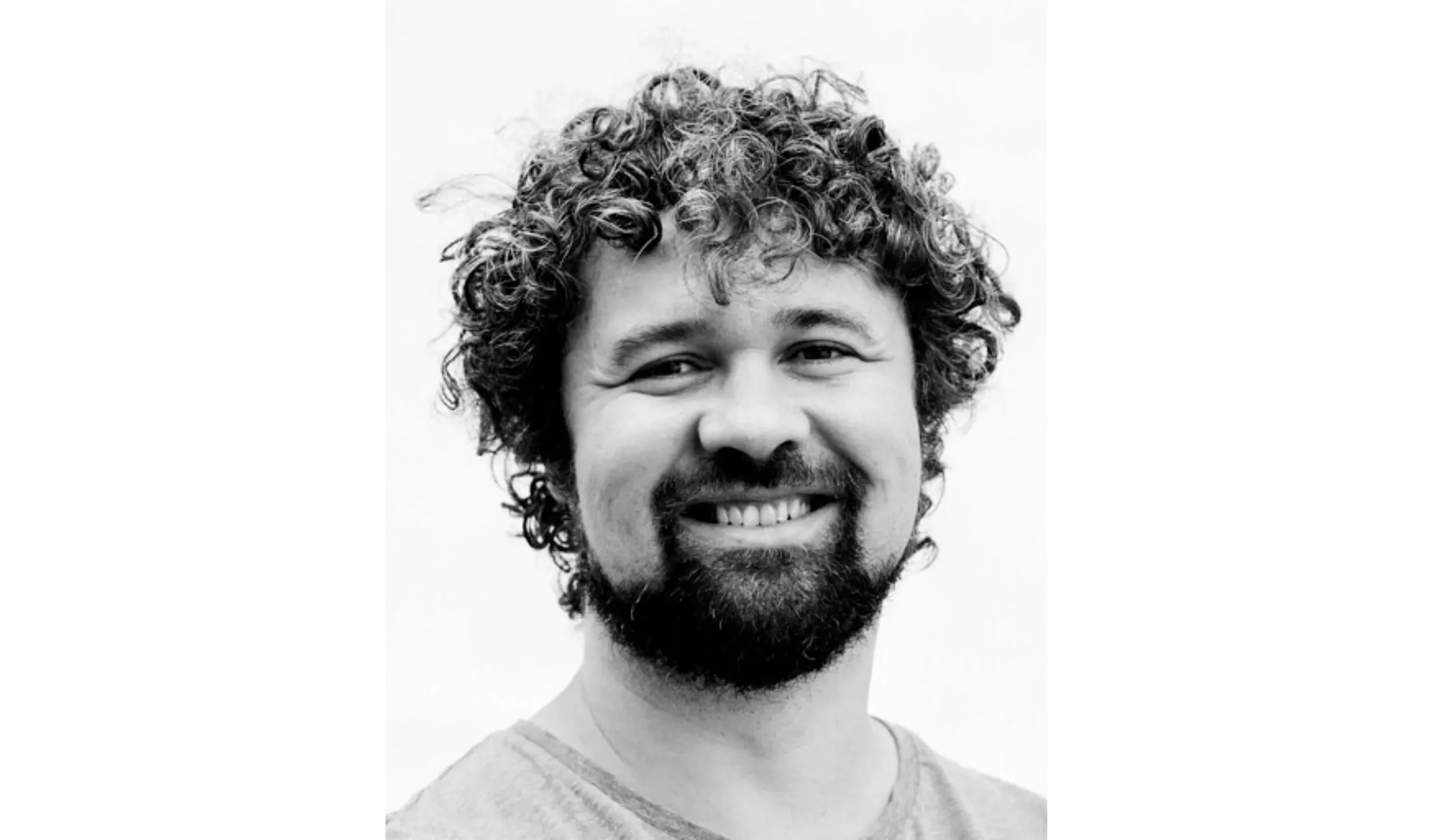
Measure and monitor safety culture in real time
Don’t wait till the next audit.
What We Do
Built on three decades of experience in behavioral research and assessment, aviation, and continuous improvement, Sociometri has a solid foundation of academic and practical expertise. We transformed the unique knowledge we gained from many years of collecting and analyzing data with our proprietary safety culture assessment in aviation, energy, and mining, into Sociometri – a comprehensive digital platform that provides an unprecedented level of scientific rigor to safety culture management and continuous improvement.
Meet the Team
-

Savannah Vlasman
Founder, Chief Scientific Officer
Harvard educated Sociologist
PhD candidate in Organizational Management
Specializes in organizational behavior
Savannah was motivated to start Sociometri by her love of two things: people and science. She has combined them in creating Sociometri to use social science to keep people safe. She has expertise in both qualitative and quantitative research gained during her studies for a bachelor’s degree at Purdue University, master’s degree at Harvard University, and ongoing PhD at Erasmus University.
Prior to Sociometri, Savannah spent nearly two decades as a Behavioral Research and Assessment Consultant creating data-gathering tools which help predict social phenomena and behavior within groups. Her diagnostic instruments are used to identify university students at risk of academic failure before they realize they are struggling.
Savannah used both her academic and industry experiences to build Sociometri. Through her characteristically painstaking and thorough research, she created a robust instrument capable of accurately and consistently measuring safety culture through the lens of the “Dirty Dozen” aviation human factors, paired with data-based and research-supported solutions to organizational safety hazards.
-

Brent Vlasman
Founder, Chief Executive Officer
Pilot, Aircraft Mechanic, Engineer
Years of management at GE and Rolls-Royce
Continuous Improvement Expert
Born into an aviation-loving family, Brent has been an aviation enthusiast from day one. Sitting in the right seat of his dad’s airplane, his co-piloting experience began at age 5. He worked as a mechanic’s assistant at the local airport during college to pay for his flight lessons and became a pilot in 2006.
Brent has a Bachelor of Science in Aeronautical Engineering Technology from Purdue University, where he also earned his Airframe and Powerplant mechanic’s license. He has a Master of Science in Aviation and Aerospace Management from Purdue, and an MBA from the University of Massachusetts.
Brent has worked in the aviation industry for the past 15 years, primarily with engine manufacturers Rolls-Royce and GE in the USA, Europe, and Asia. Brent was the first to use Sociometri to measure the safety culture of a team of 50+ pilots and technicians, incorporating the results into their Crew Resource Management (CRM) and Human Factors training, laying the foundation for systematic safety culture improvement.
Brent’s favorite airplane is the Breezy.
-

Mark Somerfield
Technical Lead
Software Engineer/Developer
Founding Engineer
AI and Machine Learning Expert
Mark is an experienced Full-Stack Developer and Software Engineer who brings a wealth of technical expertise to Sociometri. He has built software products in a variety of industries, led teams of software developers and engineers, and has also acted as a Founding Engineer and/or CTO in multiple start-up companies.
Mark is also an AI & Machine Learning expert, and teaches courses in AI and data science.
-

Yasmine Elfeki, PhD
Organizational Psychologist and Psychometrician
Industrial/Organizational Psychology PhD
Research & Data Scientist
Psychometrician
Yasmine is an Industrial-Organizational Psychologist specializing at the intersection of human behavior and data science. Her work involves operationalizing psychological constructs into validated measurement systems that drive statistical modeling.
With deep expertise in research methods, psychometrics, and multivariate statistics, she analyzes both structured and unstructured data to tell compelling data stories and build models that solve organizational problems.
Yasmine is also a passionate researcher, investigating the subtle ways identity and bias influence leadership perceptions for women at the intersections of diverse backgrounds.
Our Mission is to prevent workplace injuries and accidents by
Giving safety professionals the tools and processes they need to improve safety
Reflecting the voice of front-line workers so action is taken that improves their working lives
Contributing to the advancement of safety science, and translating research into tools for practitioners
Our values
Expertise
Our work is grounded in science and experience. We’re experts at what we do so you can rely on our knowledge, skill, and guidance.
Warmth
We are friendly, authentic and encouraging, always cheering for the humans in organizations and focusing on making their working lives better and safer.
Optimism
We have the means to make workplaces safer. While others might declare something is impossible, we prefer to say: ‘Let’s imagine this is possible – what will it look like?’
FAQs
-
There are a few ways to think about this question.
On one hand, Sociometri is for anyone responsible for the safety culture of an organization. That could be anyone at any level of the organization, but is often Safety Managers or other Safety / HSE professionals, team leaders, supervisors, managers, and anyone else responsible for shaping the culture of the org.
On the other hand, Sociometri is really for front-line workers. Meaning, the people who actually do the work that accomplishes the operations that provide value to a company.
So, for example, in aviation these are people such as pilots, mechanics, ramp agents, baggage handlers, air traffic controllers, dispatchers, operations center workers, etc. The roles and operations vary by company and industry, but the point is that Sociometri’s focus is improving safety culture and ultimately improving the working conditions for front-line workers, enabling them to do their jobs safely and effectively every day, which in turn makes the entire operation able to operate safely.
Our job at Sociometri is to listen to the voice of the front-line workers in your company, and reflect it back to Safety Managers and/or leadership teams to equip them with the data needed to make decisions that make their operations, and more importantly, their operators safer.
-
Any company with high-risk operations. Though our foundation is aviation, we also work with companies in other safety-critical industries like mining, energy, and maritime.
Socioemtri is particularly well-suited for companies with multiples locations, sites, projects, but we have also worked with companies as small as 30 people with a single location.
-
No. Sociometri is web-based, with no application download required. Your team can access Sociometri with any internet-connected device, using any browser.
-
Sociometri measures the 12 leading indicators, or preconditions, of accidents - also know as the “dirty dozen” human factors elements - identified by Gordon Dupont while at Transport Canada.
They include: Communication, Complacency, Fatigue, Stress, Teamwork, Distraction, Assertiveness, Awareness, Resources, Norms, Knowledge, and Pressure.
-
Great questions! For people unfamiliar to Sociology and Sociometry, this can seem like magic. We’d be happy to set up a call and walk you through how we do it if you are curious.
-
Yes! Sociometri is an excellent complement to an existing Safety Management System (SMS), whether it is a comprehensive 14 CFR Part 5 aviation SMS, a Safety Management System from another industry, or somewhere in between.
-
Human Factors Survey was our first safety tool, and where we first developed a valid and reliable instrument that measures the Dirty Dozen aviation human factors. We used many of the lessons learned from Human Factors Survey to create Sociometri, though Sociometri takes everything to the next level and provides additional capabilities not possible with Human Factors Survey.
-
When to incur the cost of safety is a divisive question - and it depends on your organization’s approach to safety. Do you invest in proactive tools like Sociometri that seek to prevent accidents and incidents, or do you (and your people) pay the price after the damage is done? Well, as they say, an ounce of prevention is worth a pound of cure, and Sociometri prevents.
So, the answer is - it depends.
It depends on the complexity of your organization in terms of size, roles, locations, etc.
Our focus is on keeping people safe. We want to help teams prevent accidents and incidents by proactively improving their safety culture with Sociometri. In other words, we want this tool out there helping front-line workers be safer, and don’t want price to prevent that from happening.
Please reach out to us and we can give you quick estimate once we understand a bit about your organization and your unique needs.
-
Yes, data in Sociometri is kept anonymous. However, the participants are able to indicate things like their role, location, etc., which enables powerful data analysis and insights to be identified that are unique to your organization’s various cultures and sub-cultures.
-
Yes! It has to be. Every organization is unique, in structure and in culture, which requires a bespoke configuration in order to accurately measure and reflect its nuances.
Our first step in onboarding is to work together to thoroughly map your organizational cultures and sub-cultures to ensure we configure Sociometri to capture the data necessary for meaningful analysis and insights.
-
Minimal.
Our onboarding process involves 1-2 hours of conversations with us to ensure we understand your organization and have the information needed to configure Sociometri for you.
Once live, your front-line workers will need to dedicate 15-minutes per year to provide their input.
Sociometri deploys the Culture Checks and Pulse Checks automatically for you as configured during our onboarding - so there is no additional work required from you Safety team after the initial onboarding.
When the data from your front-line starts coming in, your safety team can spend as much or as little time as you’d like sorting, filtering, and analyzing it in our intuitive analysis tools. Or, you can simply refer to your Sociometri dashboard which has all the most relevant data and insights pre-populated for you.
You will receive notifications of any important observations from our safety analysis, as well as recommended solutions within Sociometi.
You will also be alerted to any noteworthy trends or changes in your data, so you don’t need to spend any extra time calculating summary statistics, determining if changes are significant, or if trends are meaningful or not. We’ve got you covered!
Contact us
Let’s work together to improve safety.
Get in touch to see how our approach fits in your organization.
